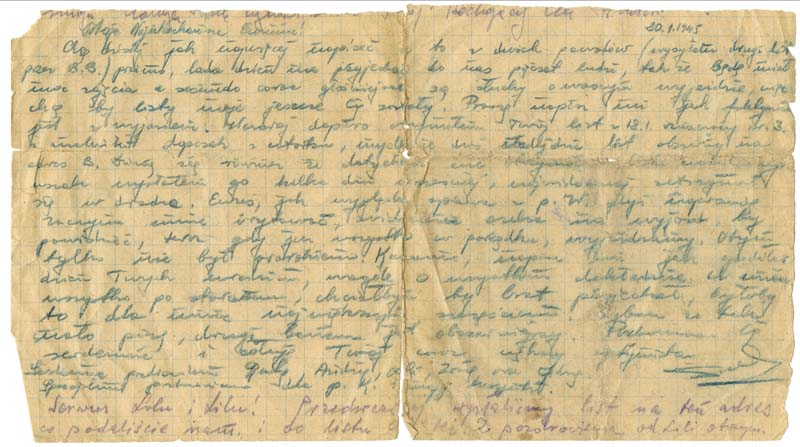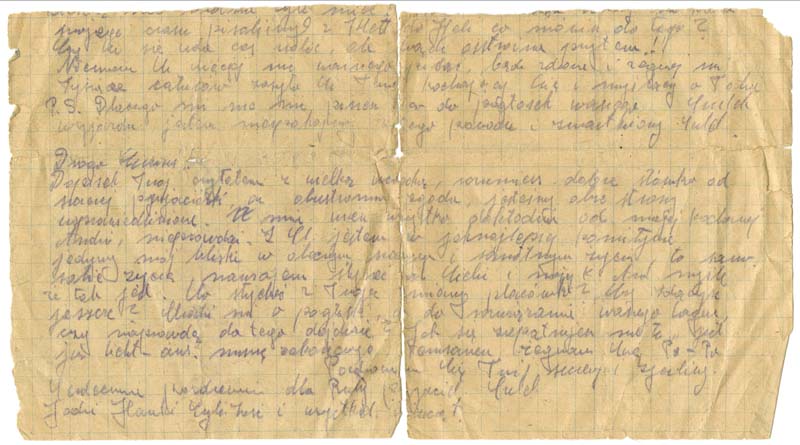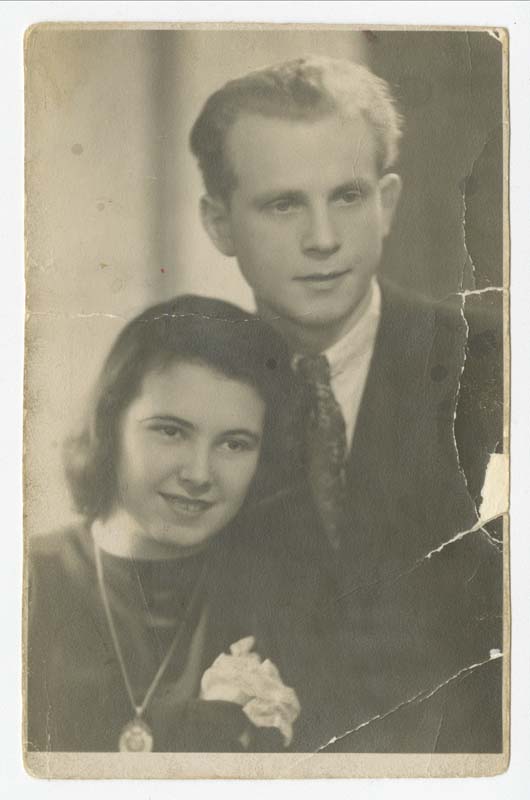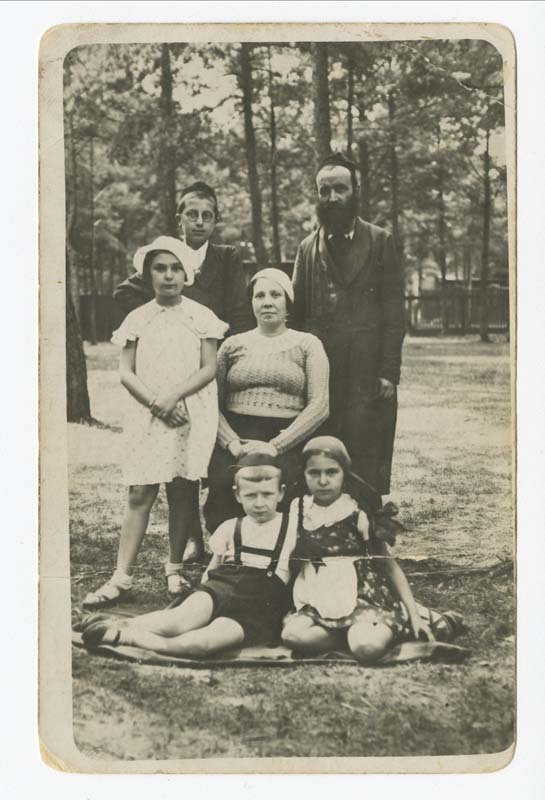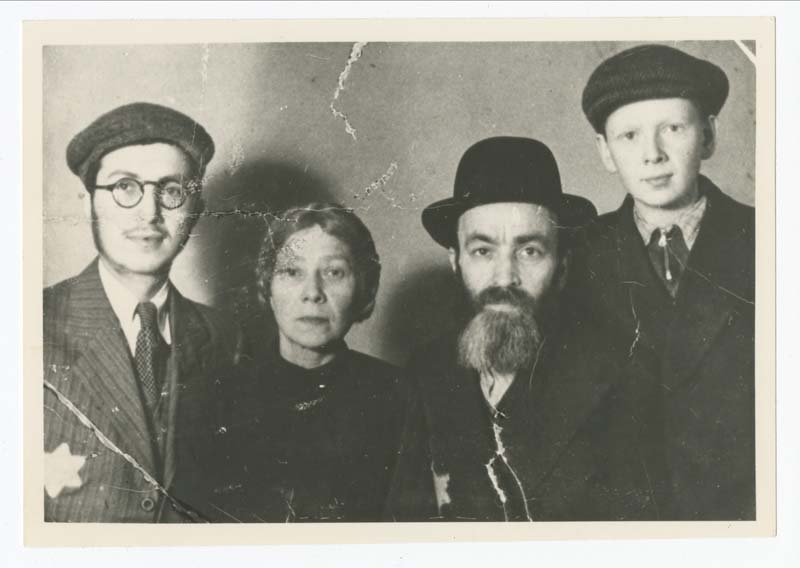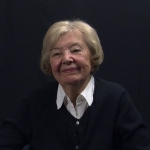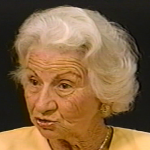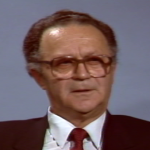This double-sided letter was written in Polish on graph paper in the Woldenberg concentration camp in Poland. It is dated January 20, 1945, and was written by Henry Majerczyk for Eva Majerczyk, born Parzenczewska. Other prisoners also left messages on the letter in purple and blue pencil. Henry writes, among other things, about his optimism regarding the end of the war.
Eva Majerczyk’s Journey: from Ghetto to Concentration Camps
After Poland was invaded in 1939, Eva and her older sister, Ruth fled their hometown, Lodz, without their family. They arrived in the Warsaw ghetto in 1940 but managed to escape in 1941 with the help of a smuggler paid by their uncle. The two sisters were later deported to the Klettendorf forced labour camp in Poland where Eva worked in the kitchen. She met Henry at the camp and they built a relationship. In 1944, Eva and her sister were deported again to Ludwigsdorf, a women’s concentration camp. Henry was sent to Woldenberg, 300 kilometers away from Eva.
A Clandestine Letter from Woldenberg to Ludwigsdorf
Eva received a letter from Henry after her arrival at the Ludwigsdorf concentration camp in Poland. This letter reached her due to German officers who acted as couriers. By early 1945, Nazi Germany’s defeat at the hands of the Allied forces was imminent. When Eva was liberated by Soviet forces on May 8, 1945, she decided to join Henry in Woldenberg. They were married the following month on June 17 and later had three children. Eva and her family immigrated to Montreal in 1953 to join Ruth, who had also survived the Holocaust.
Eva Majerczyk donated the letter to the Montreal Holocaust Museum in 2018.
